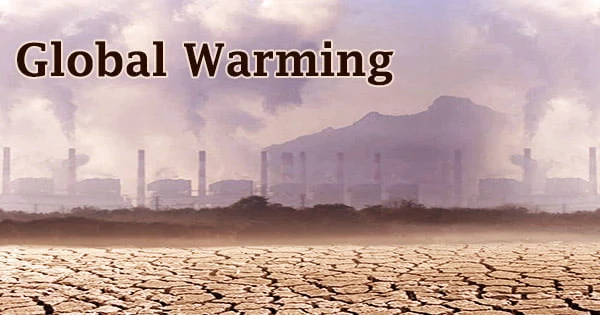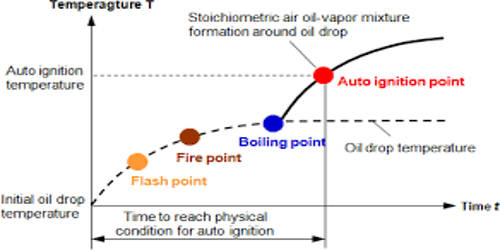Global warming is an increase in the earth’s surface temperature that has impacted numerous living forms. It is a significant issue that encompasses a lot of environmental concerns. The factors that contribute to global warming are split into two categories: “natural” and “human influences.” Global warming is primarily caused by the burning of surplus fossil fuels and the emission of hazardous gases into the atmosphere. Living creatures may suffer catastrophic consequences as a result of global warming. Global warming has a wide range of effects that are difficult to pinpoint. Some locations suffer a sharp spike in temperature, while others experience a sharp drop. Greenhouse gases are gases that cause global warming and include carbon dioxide, methane, nitrous oxide, and ozone. It elevates the earth’s average surface temperature, resulting in a slew of negative consequences. Climate change, starvation, droughts, species extinction, and other repercussions of global warming are among the most serious. Every year, the earth’s temperature continues to rise at a steady rate. The most urgent threat to the world and the life it supports is global warming. For ages, the climate has been shifting. The natural rotation of the sun causes global warming by changing the intensity of sunlight and bringing it closer to the planet. Greenhouse gases are another contributor to global warming. Carbon monoxide and sulphur dioxide are greenhouse gases that capture solar heat rays and prevent them from exiting the earth’s surface. The earth’s temperature has risen as a result of this. Another factor that contributes to global warming is volcanic eruptions. A single volcanic eruption, for example, will release a significant amount of carbon dioxide and ash into the atmosphere. When carbon dioxide levels rise, the earth’s temperature rises, and greenhouse gases trap the solar energy.
The combustion of fossil fuels for energy is the primary cause of global warming. The average global temperature has risen by 1.5 degrees Celsius in the last decade, according to reports. This is a cause for concern since it has the potential to harm ecosystems and cause an environmental disturbance. We are mostly to blame for global warming; we are chopping down forests at will. The rainforest is being destroyed at an alarming rate. We’re using fossil fuels once more. As a result, we are emitting more carbon dioxide. Refrigerators, detergent powders, and washing solutions are all sources of CFC Gas. Another factor that contributes to global warming is methane. Methane is a greenhouse gas as well. Methane is 20 times more powerful than carbon dioxide in trapping heat in the atmosphere. Methane gas may usually be found in a variety of places. Cattle, landfills, natural gas, petroleum systems, coal mining, mobile explosions, and industrial waste processes are just a few examples. As a result, the earth’s temperature continues to rise. Global warming refers to a steady increase in temperature that has resulted in several important changes in climate and biodiversity. In certain parts of the world, the consequences of global warming have been highly visible. Extreme droughts have occurred as a result of global warming. Rainfall is becoming scarce in areas where it was formerly abundant. There has been a change in the global monsoon pattern. Melting glaciers and rising sea levels are also caused by global warming, resulting in floods. Global warming has the potential to wipe out the whole human population from the planet’s surface, hence it must be addressed as soon as possible. While the harm cannot be undone, the consequences can be managed to some extent. The first step is to conduct a massive afforestation campaign. Then, instead of using traditional energy sources like petroleum, we may use greener alternatives like solar and wind energy. Global warming has a significant impact on the species. Some terrestrial species are extremely sensitive to temperature and climatic fluctuations, and thus are unable to thrive in harsh environments. Climate change, for example, puts Koalas at risk of famine. Several fish and turtle species are susceptible to ocean temperature fluctuations and perish as a result. Coral reefs are likewise particularly vulnerable to climate fluctuations, and their populations are dwindling. Global warming is a severe issue that requires full commitment and seriousness to address. However, we must lessen global warming by using less gasoline, recycling, and assisting humans in reducing global warming rather than increasing the earth’s temperature. Our generation should begin to care for the environment because if we do not act to decrease global warming, the following generation will suffer. As a result, global warming has become a major concern. We are learning it as business students because we need to understand the impact of climate change on our businesses so that we can start preserving the planet.
















